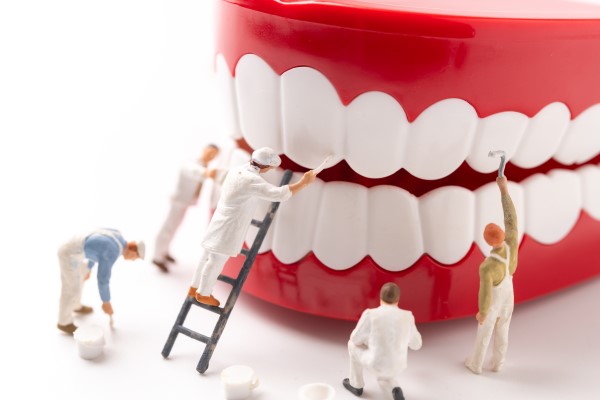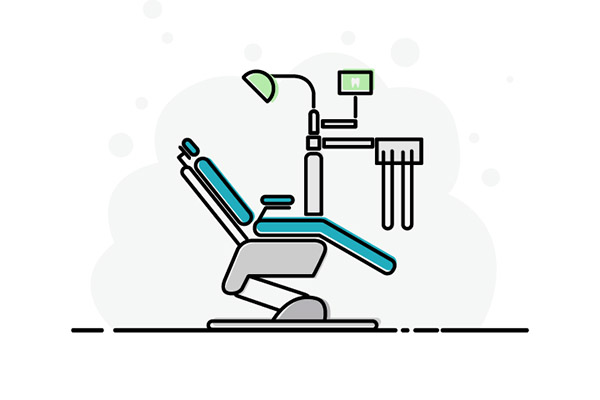6 Signs You Might Need Denture Repair

Denture repair is common and likely to become even more important. According to the Centers for Disease Control and Prevention, nearly one-quarter of the population of the United States is projected to be over the age of 65 by the year 2060. Age is a risk factor for poor oral health, and older people are more likely to need dentures than younger people.
If you have dentures, you should see a dentist on a regular basis to have them evaluated for damage. However, if you notice any signs that repair is necessary, you should make an appointment to see a dentist outside of your regular schedule right away.
How do you know whether you need denture repair?
Sometimes your dentures may be very obviously broken or damaged, making it clear that they are in need of repair. However, the signs of damage can also be more subtle, requiring a dentist's evaluation.
1. Odors
Dentures that are cleaned regularly should not harbor any unpleasant odors. If dentures have a bad smell, it could mean that there is a defect that may not be visible but nevertheless allows food particles or bacteria to get trapped in the material.
2. Gum irritation
A defect in the surface of the dentures may irritate the gums. This can cause bleeding, inflammation, and raw spots or sores that are painful. Symptoms may be worse when you have your dentures in. Taking them out may provide some relief.
3. Fit changes
Denture repair may be necessary if the appliances no longer fit in your mouth the way they used to. They may feel loose and be more susceptible to falling out of your mouth. You should be aware of the fit of your dentures and see your dentist as soon as possible if it changes suddenly. A dentist can perform any necessary repairs, but if you attempt to improve the fit by reshaping the dentures yourself, you could end up breaking them.
4. Facial shape changes
Pay attention to the appearance of your jawline and cheeks when you are wearing your dentures. If you notice any changes, it may be a sign that denture repair is necessary. If there is a problem, the cheeks may be uneven or appear less full than normal. Dentures are designed to maintain the normal contours of the face.
5. Chewing difficulties
When you need denture repair, you may have difficulty chewing your food because the appliances slide around in your mouth or cause pain when you bite down. There are certain foods that you need to avoid when you have dentures, but if you are having difficulties with foods that are otherwise acceptable, you need to see a dentist.
6. Visible chips or cracks
You should check your dentures frequently for any visible signs of damage, such as cracks or chips. If you find any, you should take them to the dentist for denture repair right away. If you ignore the defects, they could irritate your mouth, and trying to chew may make the damage worse over time.
How do you take care of your dentures?
While you will probably need denture repair sooner or later, proper maintenance of the appliance may reduce the need for repairs and help your dentures last longer.
Dentures can lose their shape if they dry out, so always put your dentures in water or a soaking solution when you are not wearing them. Keep them out of reach of pets and young children.
Dentures should be brushed once a day with a soft bristle brush and a special denture cleaner or liquid soap. Do not use toothpaste because its abrasiveness may damage the dentures. Make sure you rinse them off thoroughly after cleaning them to keep chemicals out of the mouth.
Because your dentures have to remain wet, they may be slippery when you take them out to clean them. Handle them over a sink full of water or a folded towel to cushion the fall in case you accidentally drop them. Otherwise, the force of the collision could cause chipping or cracking of the teeth or the base. The teeth could loosen or fall out altogether.
Conclusion
Denture repair can correct problems that can affect the function of the appliances and cause pain and irritation of the tissues in the mouth. It is almost certain that your dentures will need to be repaired eventually, but proper care may delay it.
Check out what others are saying about our dental services on Yelp: Denture Adjustments and Repairs in Red Bluff, CA.
Request an appointment here: https://www.drelloway.com or call Randal S. Elloway DDS, Inc at (530) 527-6777 for an appointment in our Red Bluff office.
Related Posts
If you need denture repair to fix your apparatus, you should not put off a visit to your dentist. Your dentist will examine the problem and determine what needs to happen to get the dentures working properly again. Ignoring these needs can make your dentures ineffective. If you let the dentist repair them, the dentures…
According to a 2020 study by statista.com, 41 million Americans rely on dentures, making denture repair an imperative part of everyday life for many people. Restoration options for dentures can come in many forms, however, and not every option works well for each problem. Those who suffer from ill-fitting or uncomfortable dentures may wonder if…
Rebasing is an aspect of denture repair that involves replacing the base material on the denture. Normally, you should replace your dentures every five to seven years to ensure proper fitting, function and appearance. Before then, you can have the denture checked every one or two years or go for repairs if damages occur. This…
A dental implantologist is a trained and educated dentist about the process of placing dental implants in the jaw. This dental professional can offer you another chance at achieving good dental health. You need to be a diplomate of the American Board of Implantology if you want to be this type of dentist. If you…


